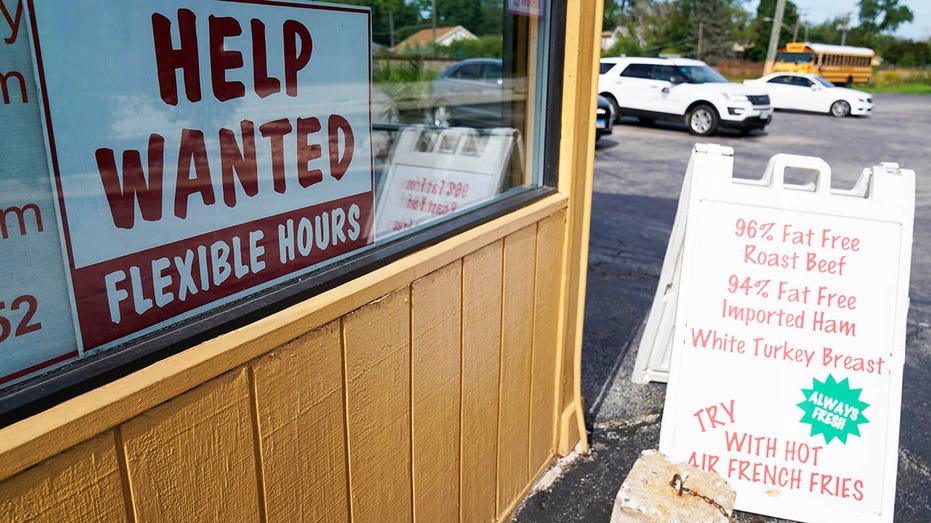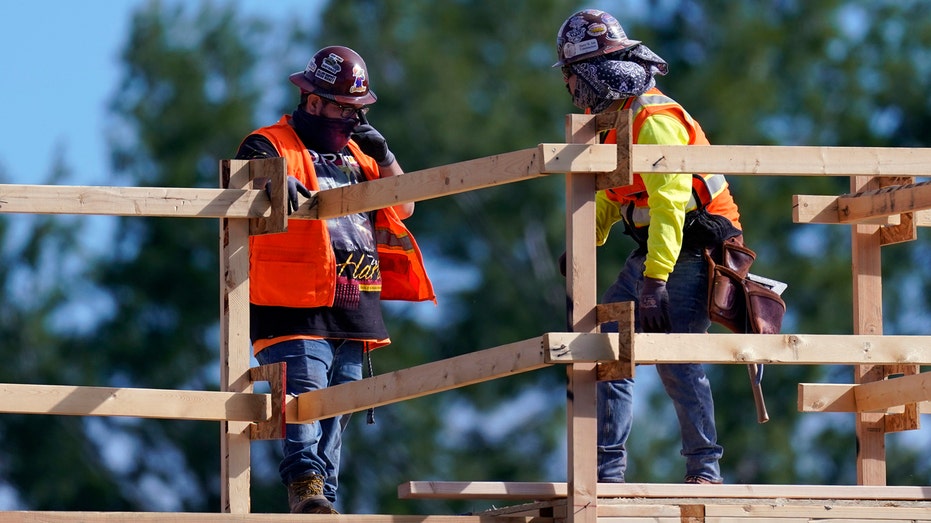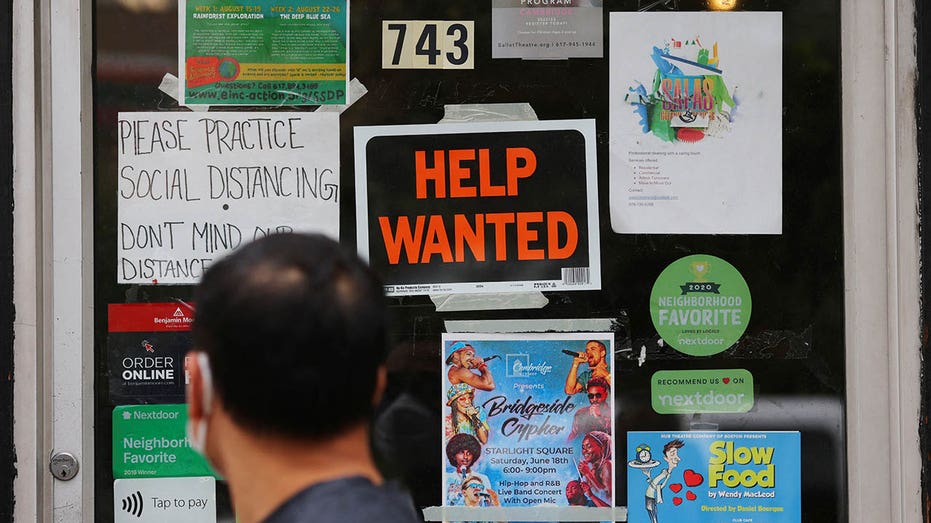Payne Capital Management president Ryan Payne and Prosper Trading Academy CEO Scott Bauer discuss if it’s too ‘dangerous’ for the retail investor to buy into the current market on ‘The Claman Countdown.’
The most anticipated economic report of the month will be released Friday morning.
Wall Street and Main Street will both be watching the October jobs report for signs that hiring is slowing, which would be welcomed by the Federal Reserve as a sign that high inflation might begin to ease.
Economists surveyed by Refinitiv say the U.S. economy likely added 200,000 new nonfarm jobs in October. That’s down from 263,000 the previous month and would mark the weakest job growth since December 2020.
While the pace of job growth is slowing, the labor market remains tight with employers reluctant to lay off workers.
US COMPANIES ADDED 239,000 JOBS IN OCTOBER, BETTER THAN EXPECTED: ADP

FILE – A help wanted sign is displayed in Deerfield, Ill. The U.S. government will issue the October jobs report on Friday morning. (AP Photo/Nam Y. Huh / AP Newsroom)
The unemployment rate is anticipated to edge higher to 3.6%. That’s up from 3.5% in September.
Hourly pay, too, is expected to have risen at a brisk pace, though it might have weakened a bit from September.
The Fed raised interest rates again this week in an attempt to try to bring inflation down from near a 40-year high.
A low unemployment rate and solid wage gains are good for workers, but sizable pay raises, especially without gains in workers’ efficiency, can contribute to higher inflation.
JOB OPENINGS UNEXPECTEDLY SURGE IN SEPTEMBER DESPITE FED EFFORTS TO COOL LABOR MARKET

Construction workers talk at a USA Properties Fund site. (AP / AP Newsroom)
In this week’s labor-related reports, U.S. job openings unexpectedly surged higher in September.
The Labor Department said Tuesday that there were 10.7 million job openings in September — an uptick from the previous month’s reading of 10.1 million.
Private payroll job growth rose faster than expected in October, according to the ADP National Employment Report released Wednesday morning.
Companies added 239,000 jobs last month, beating the 195,000 gain that economists surveyed by Refinitiv had predicted and better than the downwardly revised gain of 192,000 in September.

A pedestrian passes a “Help Wanted” sign in the door of a hardware store in Cambridge, Massachusetts. (REUTERS/Brian Snyder / Reuters Photos)
CRUSHING INFLATION COULD PUSH UNEMPLOYMENT TO 6%, WALL STREET BANK WARNS
At Wednesday’s Fed meeting, Chairman Jerome Powell said that in order to tame inflation, the central bank would likely have to raise rates high enough to weaken the job market. That could mean hiring will slow in coming months or even that many employers will cut jobs and increase the unemployment rate.
“The broader picture is of an overheated labor market where demand (for workers) substantially exceeds supply,” Powell said.
CLICK HERE TO GET THE FOX BUSINESS APP
The policymakers want to see signs that job growth and wages are easing, he said, “but I don’t see the case for real softening just yet.”


